This project was originally published under the name Home Assistant Amber.
We have been working on Home Assistant, the software that powers Home Assistant Yellow, for eight years. It is the second most active Python project on GitHub with over 8,000 contributors last year alone. With this campaign we’re introducing Home Assistant Yellow, a ready-to-use device and the easiest way to run Home Assistant and experience the best home automation in the world.
Home Assistant Yellow integrates 1,000+ different devices and services, allowing you to create powerful automations and get insight into your energy usage. All from an easy-to-use interface that runs 100% locally without anything in the cloud.
A home is not static. As we grow as a person or expand our family, our homes evolve. What we buy today, should work tomorrow. With Home Assistant Yellow we have created a system that can be upgraded so it can keep up as you grow.
At the heart of Home Assistant Yellow is the Raspberry Pi Compute Module 4. This plugs into the Home Assistant Yellow board and provides the brains. You can upgrade to a more powerful version of the Compute Module 4 at any time.
Home Assistant Yellow includes the latest and greatest Zigbee radio chip from Silicon Labs to communicate with smart devices in your home. The chip is forward-compatible with the upcoming Matter smart home connectivity standard, in which Silicon Labs is heavily involved. Home Assistant Yellow will be compatible with Matter as soon as the Silicon Labs Matter SDK is released.
Home Assistant Yellow also contains an M.2 extension port. This allows you to easily plug in an NVMe SSD drive to extend the available space.
With Home Assistant Yellow, you can control your lights, thermostat, TV, music, and more. Home Assistant integrates with over 1,000 different devices and services. Home Assistant works with popular brands like Philips Hue and also that odd-ball lightbulb you picked up at a sale. Check the growing list of integrations to see if your devices are already compatible.
Home Assistant isn’t limited to integrating hardware devices either. Your dashboards and automations can also use services to get information about your commute, air quality in your area, or the latest currency exchange rates.
With Home Assistant Yellow, everything in your home becomes a data point and can be automated:
Use our advanced automation editor to create powerful automations, or select one of the many automation blueprints contributed by Home Assistant’s global community of users. Blueprints are templates that you can easily configure, like picking a motion sensor and an area to create a motion-based automation.
Want to fine-tune an automation? Use our automation tracing engine to see exactly what’s happening at every step of the automation.
Home Assistant Yellow helps you track your energy. By pairing Home Assistant Yellow with supported sensing hardware, you can see both how much energy you’re using at the moment and trends over time. Solar panels, home batteries, and gas usage are also supported.
Don’t like cables? Neither do we, so we created a variant of Home Assistant Yellow that includes Power-over-Ethernet (PoE). With a PoE-compatible switch or router you can communicate and power Home Assistant Yellow with a single Ethernet cable.
The flagship Home Assistant Yellow product comes pre-installed with a variant of the Raspberry Pi Compute Module 4 (CM4) that has 16 GB of eMMC flash storage, where the operating system and all user data (e.g., sensor readings) are stored. As you install more third-party applications or collect more sensor data, you may want to expand Yellow’s storage capacity. You can do this by upgrading the CM4 to a variant with 32 GB of eMMC flash storage, or by installing an NVMe solid-state drive (SSD) in Yellow’s M.2 slot.
Unlike Home Assistant Yellow, the Yellow Kits do not come with a CM4, so you will need to provide your own. Of the 32 CM4 variants available, some of them do not come with eMMC flash storage - these are known as "Lite" variants of CM4. When using a CM4 Lite, you will need to install an NVMe SSD in the M.2 slot so the operating system and user data have a place to reside.
Home Assistant Yellow has an integrated Zigbee chip by Silicon Labs to control Zigbee-enabled devices in your home. The chip is Thread-certified and will support the upcoming Matter smart home standard.
Z-Wave is an alternative to Zigbee but is not compatible with Zigbee. Home Assistant Yellow does not include a Z-Wave radio, but it is possible to use a Z-Wave USB stick or attach the AEOTEC Z-Pi 7 inside the case. There are several reasons we did not include Z-Wave on the mainboard itself. For example, each region of the world requires a different Z-Wave antenna and the regulatory approval for a board with one radio is much simpler than that with two.
Home Assistant Yellow does not have integrated Bluetooth or Wi-Fi, but you can easily install a variant of the Raspberry Pi Compute Module 4 that includes both. Note that we do not recommend connecting Home Assistant to your network over Wi-Fi because a reliable Internet connection is important for the backbone of your smart home.
The Raspberry Pi Compute Module 4 allows you to communicate with external components via GPIO pins. Most GPIO pins on Home Assistant Yellow are used for on-board features such as the Zigbee module, audio DAC and for the debug console. This is why we don’t include a Raspberry Pi-compatible 40-pin header - most of those pins are already used. Instead, there is a 10-pin header (labeled J11 in the image below) that exposes a serial port and I²C. This header is compatible with the first ten pins of the standard 40-pin header, which makes it compatible with accessories that only use those first ten pins.
That said, we don’t recommend using the GPIO pins with Home Assistant at all. Instead, we suggest using an external ESP-based microcontroller with ESPHome, which means you can place sensors and cameras anywhere, not just physically connected to Home Assistant. It also allows you to extend and reconfigure your sensor node independently. ESPHome is an open source project by the creators of the Home Assistant Yellow and has state-of-the-art integration with the Home Assistant software.
Home Assistant Yellow is powered by a 12 VDC, 2 A power supply with a barrel jack. We opted for a barrel jack over USB because many USB power adapters do not supply enough power, which results in an unreliable system. Home Assistant Yellow uses about 1.5 W when idle, and 2.5 W if an NVMe SSD is installed. Under load, this increases to about 5-9 W.
The Power-over-Ethernet variant of the Yellow Kit is by default configured as an 802.3at Type 1 Class 3 device (PoE, up to 15.4 W). If you require more power, the device can be turned into an 802.3at Type 3 Class 4 (PoE+, up to 25 W) device by changing a jumper.
With Home Assistant Yellow, there is no vendor lock-in. The product is designed as an open platform that puts you fully in control, without limitations. You can do whatever you want with your data, like export the raw data to a time series database or use it with another automation engine.
Home Assistant Yellow protects your data from being vacuumed into the treasure chest of an advertising company, or disappearing completely if a company goes out of business. All data is stored locally and Home Assistant runs 100% locally. Internet outage? No problem. Home Assistant does not rely on the Internet to operate.
This all sounds great, but you don’t have to take our word for it — Home Assistant Yellow is open source throughout. Home Assistant, with all its components, is open source software. We will also make the Yellow board open source as well — design resources will become available as the project progresses.
Finally, Home Assistant Yellow can also be used with other software. Home Assistant Yellow is based on the Raspberry Pi Compute Module 4, for which a lot of software, including full images, has been developed, both by the Raspberry Pi Foundation and the wider community. For example, Raspberry Pi OS itself runs just fine.
Home Assistant Yellow runs the Home Assistant Operating System. Software documentation and various support channels for Home Assistant can be found on home-assistant.io. Additional user documentation will be added as the project progresses.
For feedback, comments, and questions you can reach us on the following channels:
Produced by Nabu Casa in Planet Earth.
Sold and shipped by Crowd Supply.
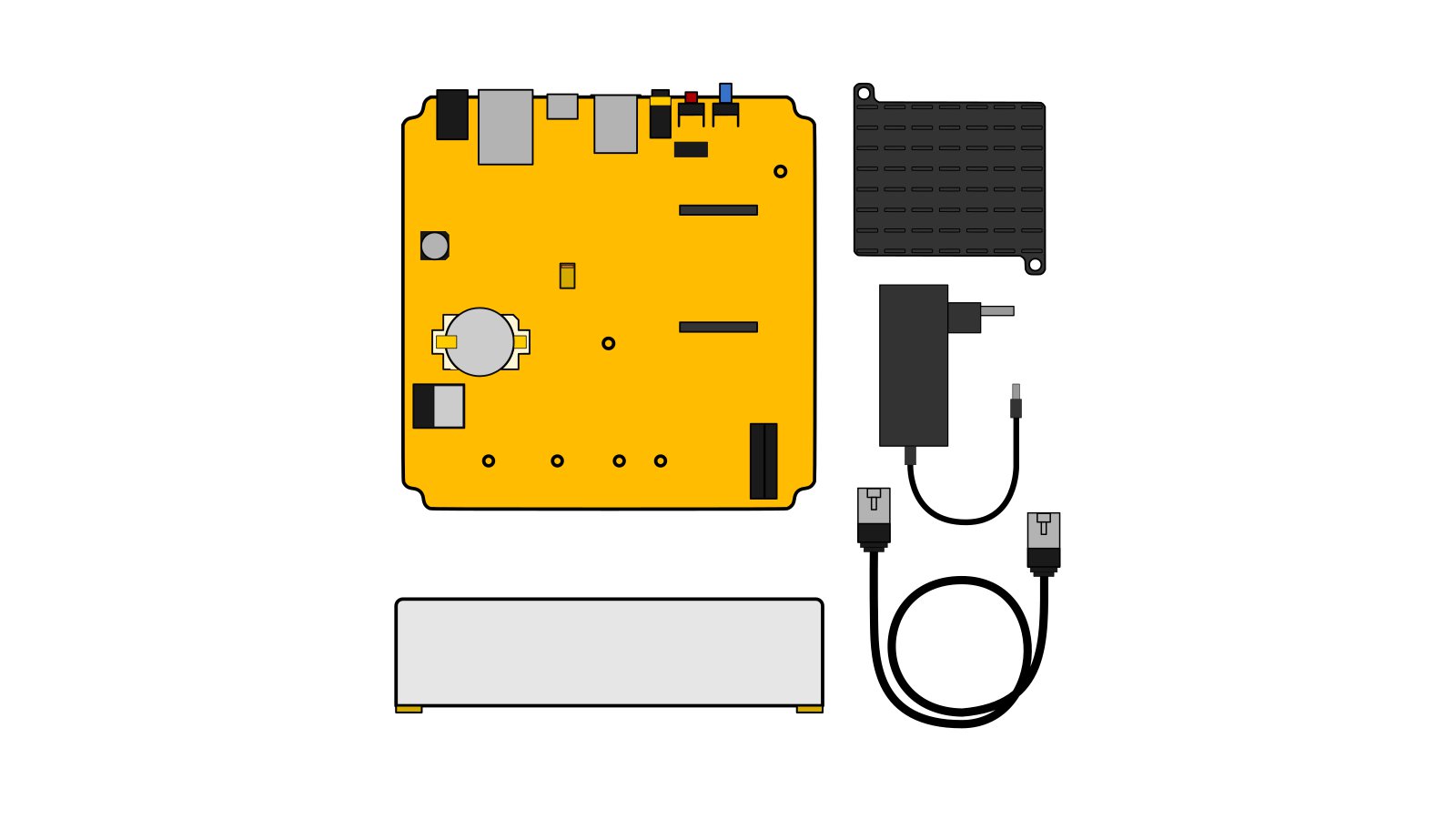
Some assembly required! This kit includes everything in the flagship version except the Raspberry Pi Compute Module 4. This option allows you to pick the compute module with the memory and eMMC storage to fit your needs. You will need to install Home Assistant on the compute module you provide. Custom enclosure, custom heat sink, and Ethernet cable included. This version comes with a power supply, but does not support Power-over-Ethernet. Other than the power supply, it is the same as the "Yellow Kit with Universal Power Supply," which will replace this version once stock is depleted.

Some assembly required! This kit includes everything in the flagship version except the Raspberry Pi Compute Module 4. This option allows you to pick the compute module with the memory and eMMC storage to fit your needs. You will need to install Home Assistant on the compute module you provide. Custom enclosure, custom heat sink, and Ethernet cable included. This version includes an international power supply with US, EU, AU, and UK plugs, but does not support Power-over-Ethernet. Other than the power supply, it is the same as the "Yellow Kit with Regional Power Supply," which is currently being phased out.
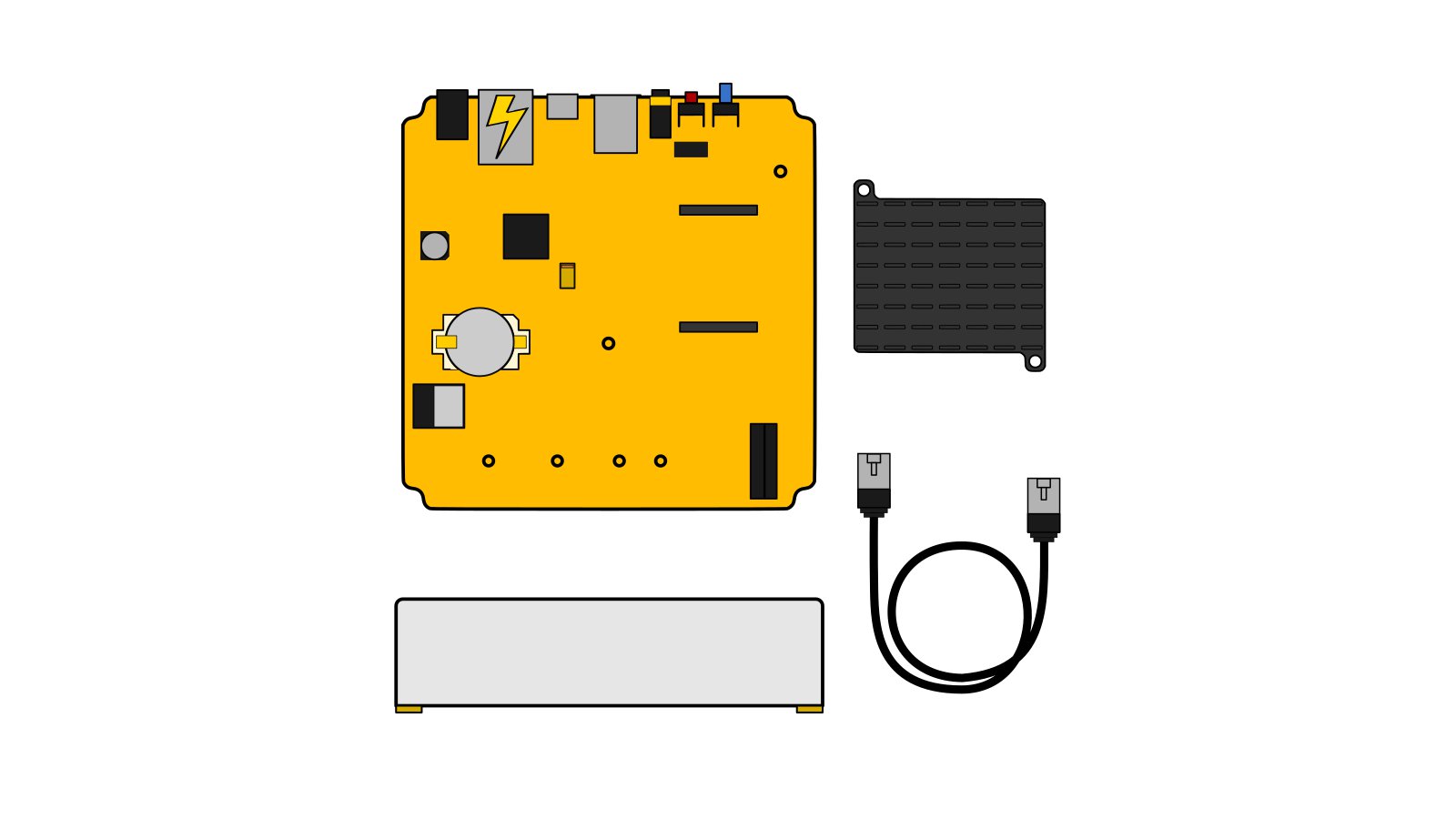
The Home Assistant Yellow mainboard that comes with this kit supports Power-over-Ethernet (PoE). The kit does not include a power supply, though it is safe to operate it with both PoE and a 12 VDC power supply plugged in at the same time, in which case power will be drawn from the 12 VDC supply and not PoE. Custom enclosure, custom heat sink, and Ethernet cable included. You must provide your own Raspberry Pi Compute Module 4 and install Home Assistant on it.
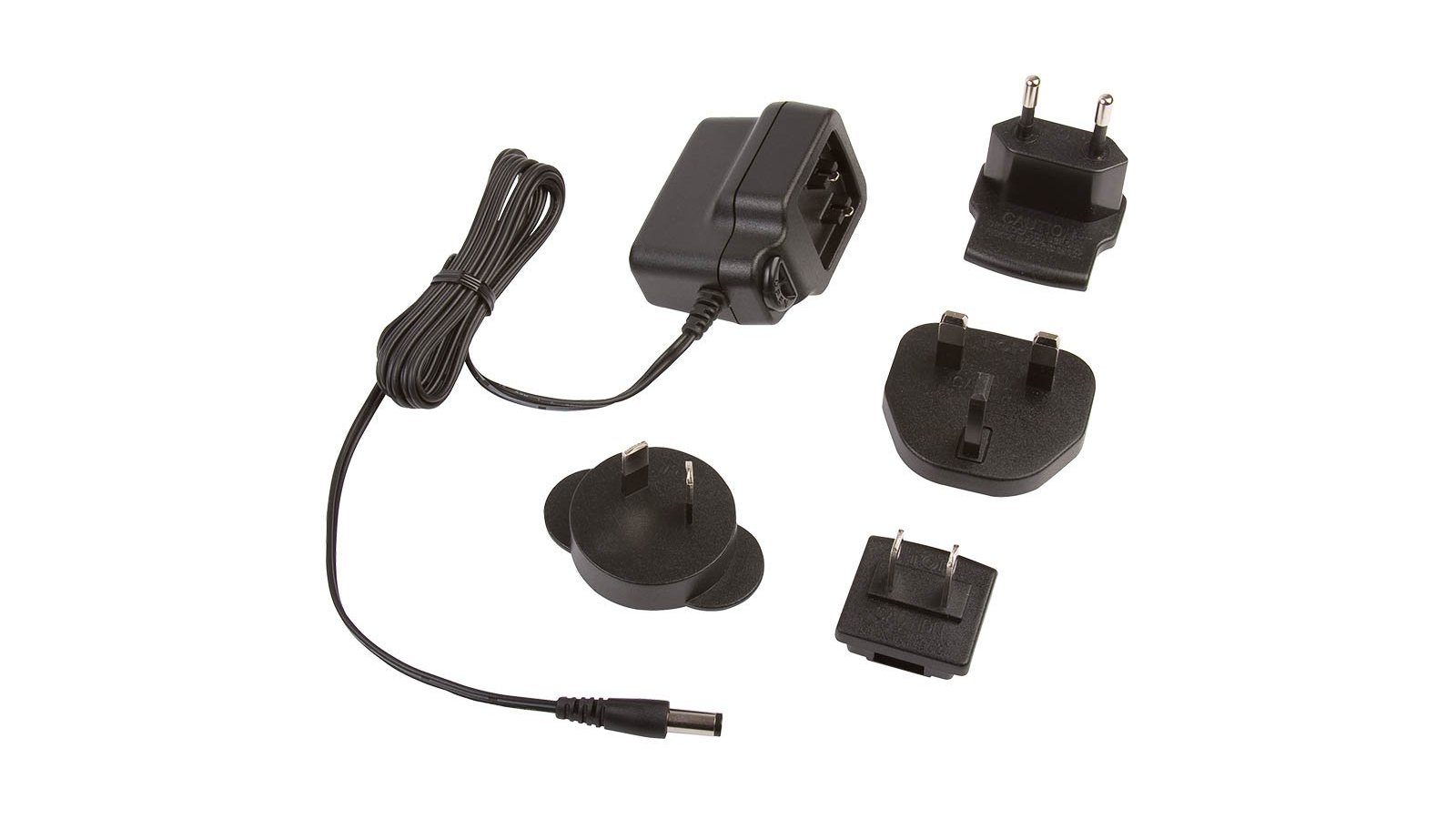
From the Crowd Supply Basics project.
In case you want an extra power supply.
A 12 V, 3 A (36 W) AC adapter with interchangeable plugs provided for the US, EU, AU, UK, plus a CCC-compliant plug - connecting via a 2.1 mm center-positive barrel jack.
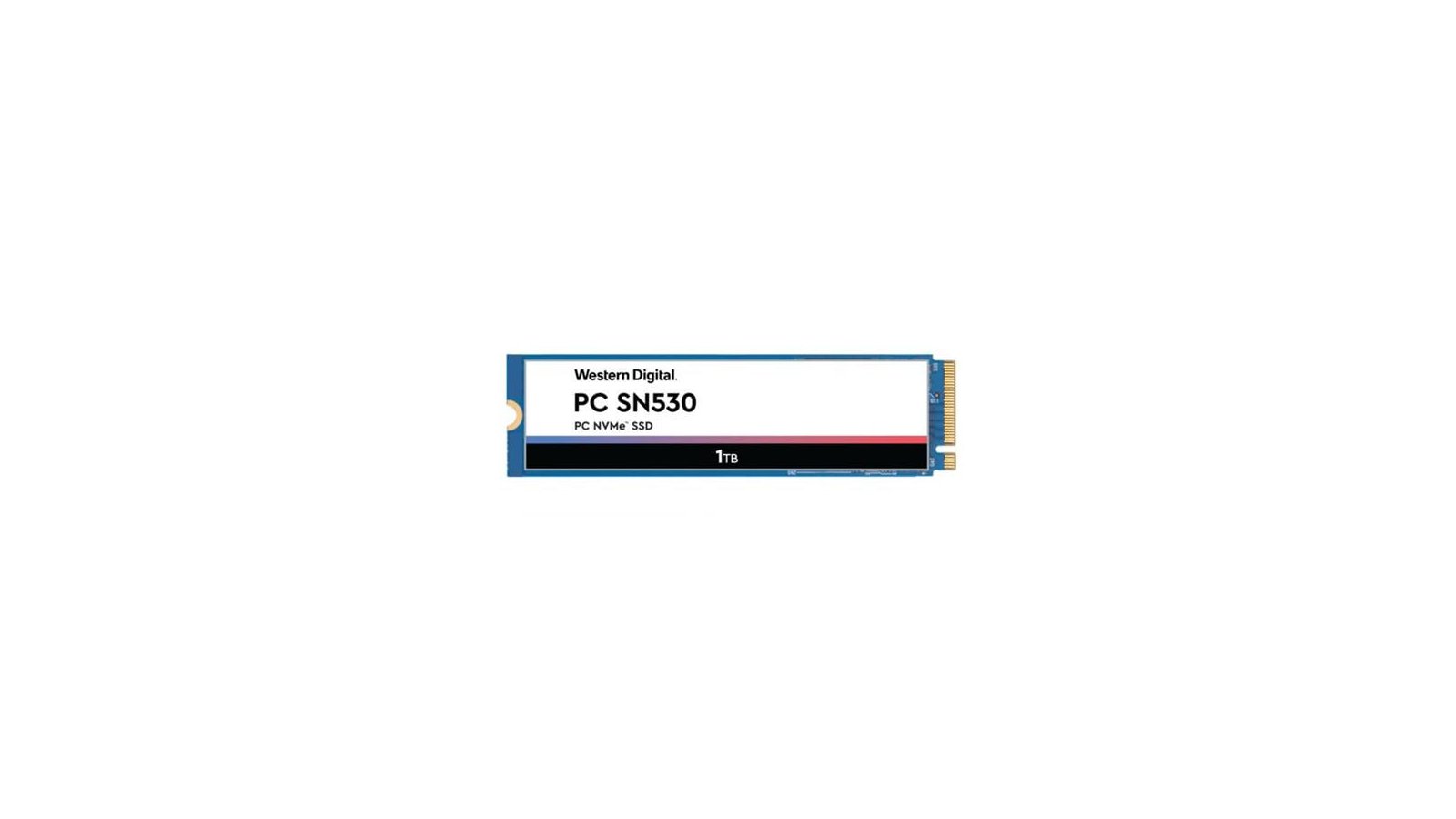
From the Crowd Supply Basics project.
For booting or expanded storage.
SanDisk NVMe SSDs in various capacities: 256 GB (P/N SDBPNPZ-256G), and 512 GB (P/N SDBPNPZ-512G).
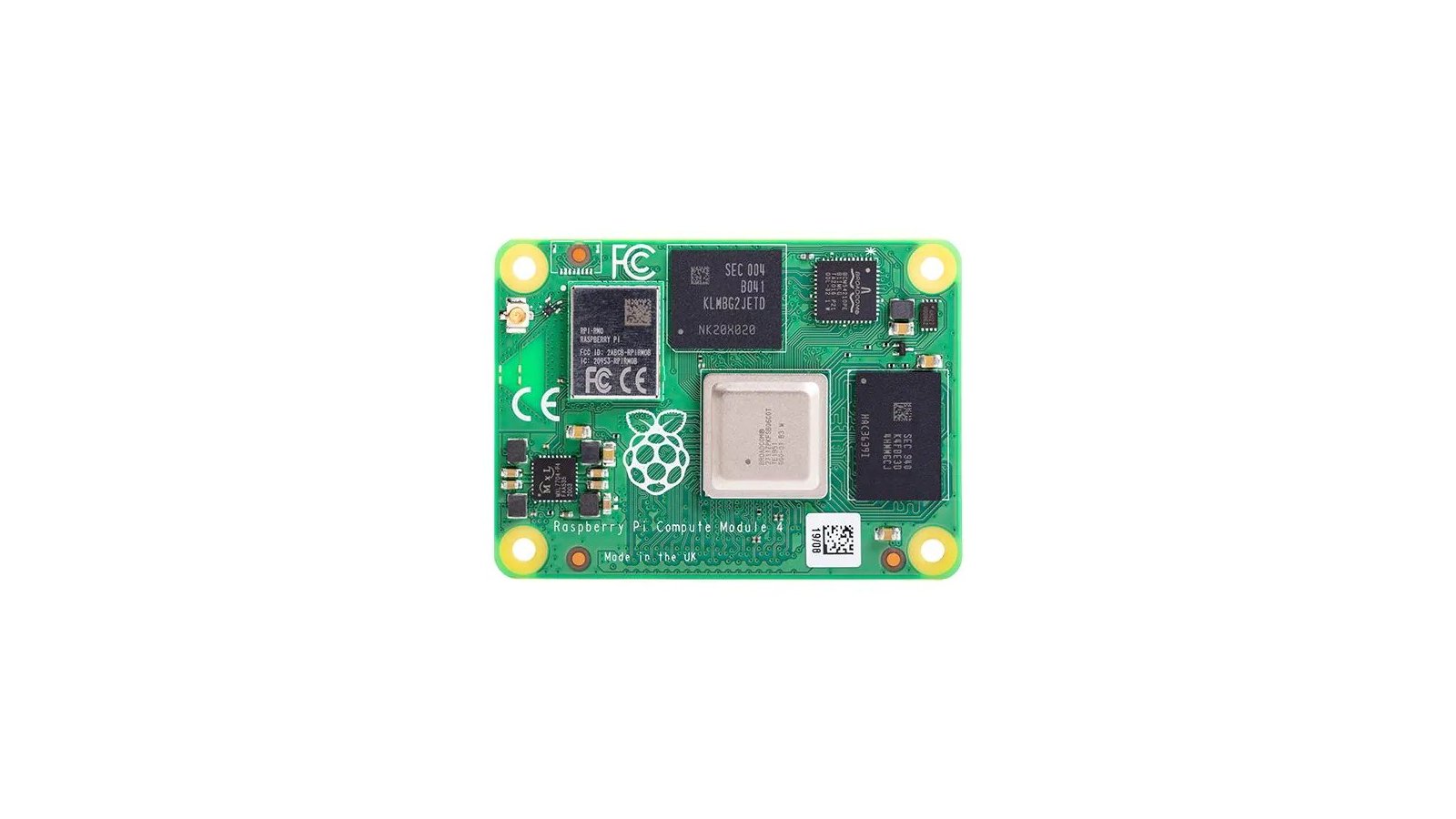
From the Compute Module 4 project.
Perfect for use with a Yellow Kit.
This CM4104032 varaint of the Raspberry Pi Compute Module 4 is a System on Module (SoM) containing an ARM quad-core Cortex-A72 processor, 4 GB RAM, ethernet, 2.4 and 5 GHz 802.11b/g/n/ac Wi-Fi, 32 eMMC storage, and supporting power circuitry.
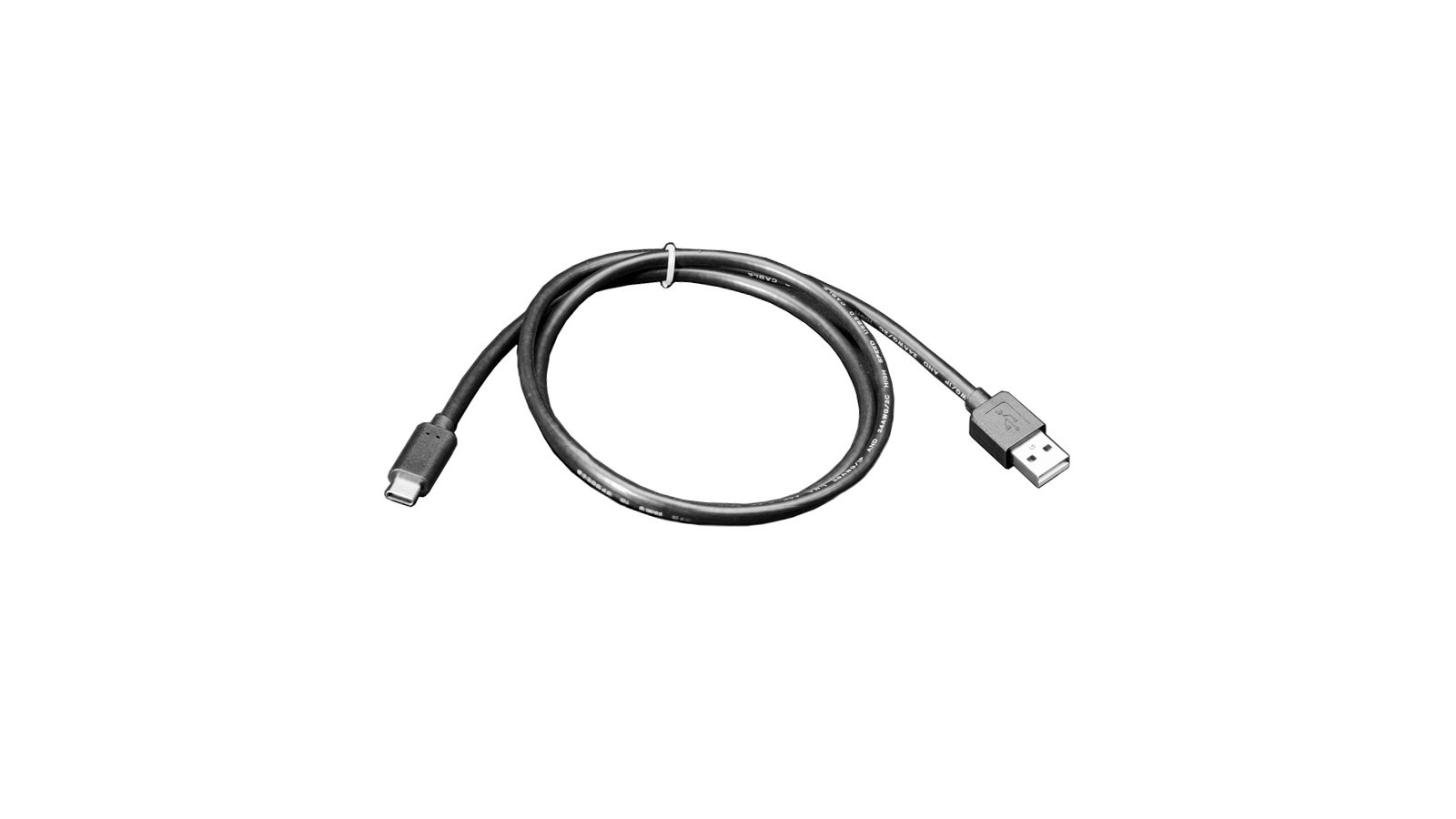
From the Crowd Supply Basics project.
Optional - only needed for accessing Home Assistant Yellow's UART and CM4 USB recovery.
A 100 cm cable with a USB Type-C and a USB Type-A connector.

Nabu Casa, Inc. has been founded by the creators of the open source project Home Assistant and Home Assistant OS. We provide Home Assistant Cloud, the missing cloud piece for Home Assistant. Our mission is the success of Home Assistant as a whole.